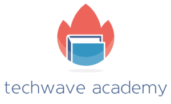In today’s tech-enabled world, it is easier than ever to achieve a high paying career. Gone are the days where you need to commit yourself to 4-years of study and hundreds of thousands of dollars in student debt for a college degree.
Fast-track your goals and launch a career in the technology sector in as little as 16 or 32 weeks.
Find your program. Enroll today.
DevOps is a software development approach that emphasizes collaboration, communication, and integration between software developers and IT operations teams. The goal of DevOps is to increase the speed and efficiency of software development and deployment, while improving software quality and reliability.
DevOps involves the use of various tools and practices, such as continuous integration (CI), continuous delivery (CD), and infrastructure as code (IAC), to automate and streamline the software development process. This includes automating the build, testing, and deployment of software, as well as the management and configuration of infrastructure.
DevOps is a cultural shift in software development that emphasizes cross-functional collaboration, transparency, and shared responsibility for software development and delivery. It requires a mindset of continuous improvement and a willingness to embrace change and experimentation.
DevOps is used by many organizations across various industries to improve software development and delivery, reduce costs, and improve customer satisfaction. It has become an essential approach to software development in today's fast-paced and rapidly changing technological landscape.
Cloud computing is a technology that allows users to access and use a shared pool of computing resources over the internet, including servers, storage, databases, and software applications. Cloud computing provides users with on-demand access to computing resources that can be quickly scaled up or down as needed, without requiring users to invest in their own infrastructure.
Cloud computing can be divided into three main service models: Infrastructure as a Service (IaaS), Platform as a Service (PaaS), and Software as a Service (SaaS).
IaaS: IaaS provides users with access to virtualized computing resources such as servers, storage, and networking. Users can deploy and manage their own applications and software on these resources, while the cloud provider manages the underlying infrastructure.
PaaS: PaaS provides users with a platform for developing, deploying, and managing their own applications without having to worry about the underlying infrastructure. PaaS platforms typically include tools and services for building, testing, and deploying applications.
SaaS: SaaS provides users with access to software applications over the internet, without requiring them to install or manage the software on their own devices. Examples of SaaS applications include email, collaboration tools, and customer relationship management (CRM) systems.
Cloud computing offers many benefits, including cost savings, scalability, flexibility, and increased reliability and security. It has become an essential technology for many businesses and organizations, enabling them to innovate and compete in today's digital economy.
Data science is an interdisciplinary field that involves the use of scientific methods, processes, algorithms, and systems to extract insights and knowledge from data. Data science involves a range of techniques and tools for data analysis, including statistics, machine learning, data mining, data visualization, and data engineering.
The goal of data science is to extract useful and actionable insights from data, which can then be used to make better decisions, optimize processes, and create new products and services. Data science is used across many different industries, including healthcare, finance, marketing, and technology, to name just a few.
Data science typically involves several stages of analysis, including data collection, data cleaning and preprocessing, data exploration and visualization, statistical analysis, and machine learning. Data scientists also need to be skilled in programming languages such as Python or R, as well as database technologies such as SQL.
Overall, data science is an exciting and rapidly growing field that is helping organizations make better use of the vast amounts of data that are generated every day.
Personalized to You
Our customizable development programs enable you find a specialization in the growing tech sector that fits your strengths and aligns with your goals.
And we don’t just teach you how to code. We immerse you in a job simulation, to help you gain experience faster. Plus, we integrate what’s often only available to senior-level employees: individualized professional development and leadership training.
Life-long Support
Big changes are not easy. But it sure is easier when you have great support – before, during, and after our program.
Plus, you’ll get exclusive access to career coaching, employment opportunities, industry networking, continuing education, and an international community of current students, alumni, coaches, and staff – forever.
Programs for every life stage and schedule.
We know a thing or two about crazy schedules. That’s why we’ve designed our programs to fit various needs and commitment levels.
Whether you want an immersive training experience from our classroom or your couch, you can transform your life from just about anywhere – without losing the community, collaboration, and personal support usually only available in a physical classroom.
